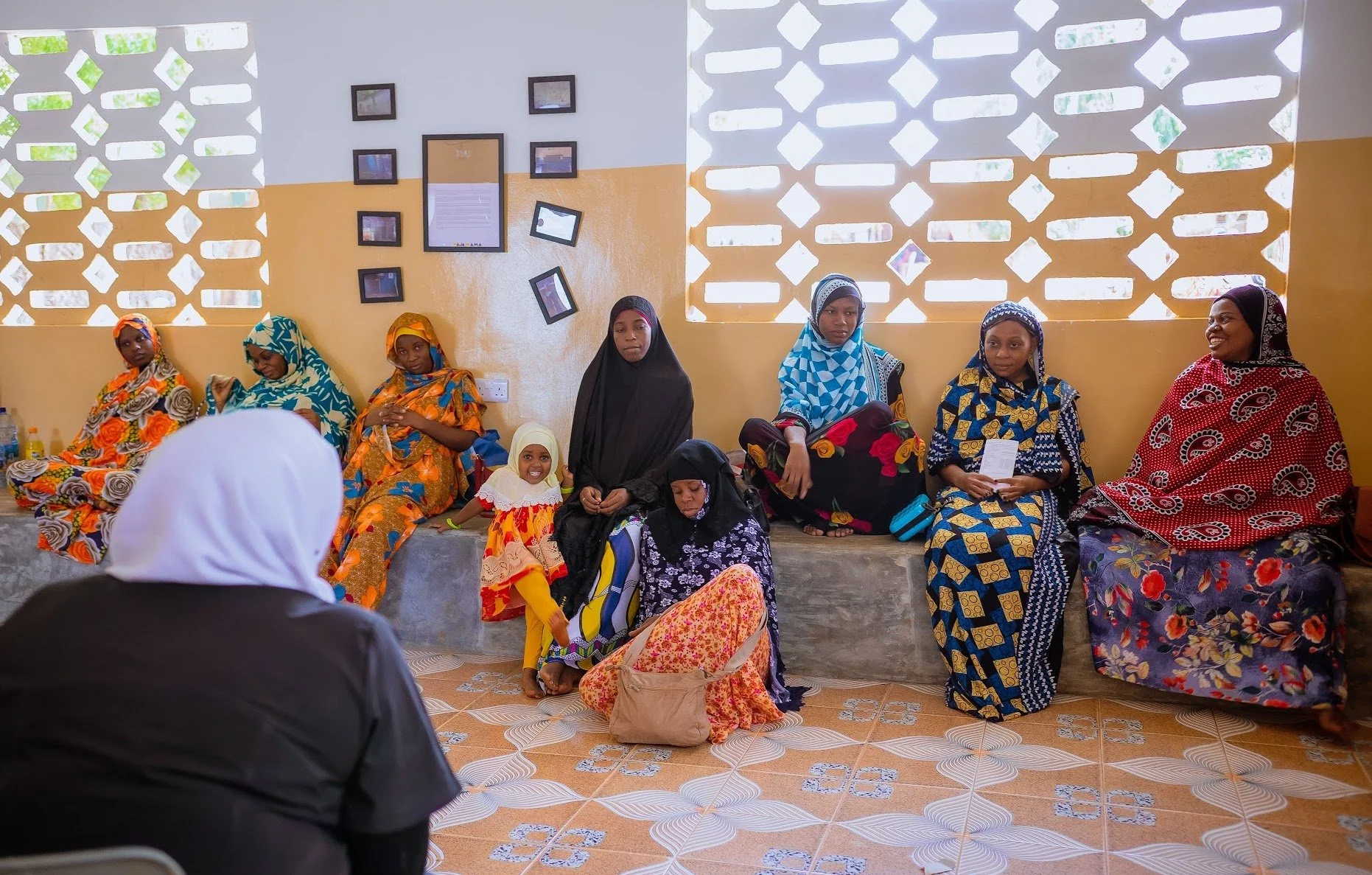Group Prenatal Care Outreach in Rural Villages
Throughout each month, the WAJAMAMA team heads out to distant villages to provide group prenatal care (GPC) for women who are otherwise inaccessible to pregnancy check-ups. In our recent visits to Kizimkazi and Makunduchi, the community’s pregnant women gathered in front of their local clinic for their prenatal check-up waiting for the arrival of WAJAMAMA’s doctors, nurses, and midwives. As the team set up stations for the women’s vitals and tests, everyone was in high spirits and communicating with one another.
We brought along with us all the materials needed for their check-ups, including a scale, blood pressure cuff, hemoglobin test, urine test, and Doppler ultrasound. One of our nurses measured the women’s weight and blood pressure, while another nurse analyzed their blood and urine tests before seeing our GPC practitioner, Dr. Radhia for their physical assessment. The women were also taught how to check their own weight and blood pressures, what the numbers mean, and the importance of keeping track of these measurements.
Their information was recorded on a chart which had their past medical visits/history to keep track of their pregnancy status and overall health. The WAJAMAMA team holds on to these charts for the convenience of our patients until their next visit. Before we collect them, we make it a routine for the women to share their hemoglobin number from their current and last visit so that they have a better understanding of their health. Not only does this help them keep track of their pregnancy, but also encourages them to understand medical terminology and what their results mean. Fortunately, all the women’s hemoglobin increased, which indicated a healthy pregnancy, and we all cheered with the news.
While the women waited to be seen for their belly measurements, we all participated in a group meditation guided by one of our nurses. We discussed the importance of breathing exercises, and how taking care of the mother’s mental and physical health promotes a healthy development for the baby.
In the health assessment room, women were called one at a time for their exam. Dr. Radhia felt the positioning of the baby and used a Doppler ultrasound to auscultate the heartbeat. She asked each patient if they noticed any abnormalities (such as no fetal movement, vaginal bleeding, and leaking of fluid) and about their overall health since their last visit.
It is a huge priority of ours that we not only conduct routine check-ups on the women, but to provide medical knowledge to them as well. After check-ups were done, we gathered to recall what was learned from prior lessons. We focused on HIV/AIDS to spread awareness on what it is and ways it can be transmitted. By passing a ball to one another, the women either asked a question or answered one on whoever it landed on. Each of them contributed to the conversation, while bonding with one another forming a close-knit community. This allowed women of various ages to learn and relate with each other throughout their pregnancy journey.
Providing a means for Zanzibari women to get routine check-ups through GPC shifts the norm, allowing them to advocate for their health, and showing future generations the importance of these visits.
Written & published by Lily Suleiman, WAJAMAMA Development Intern






